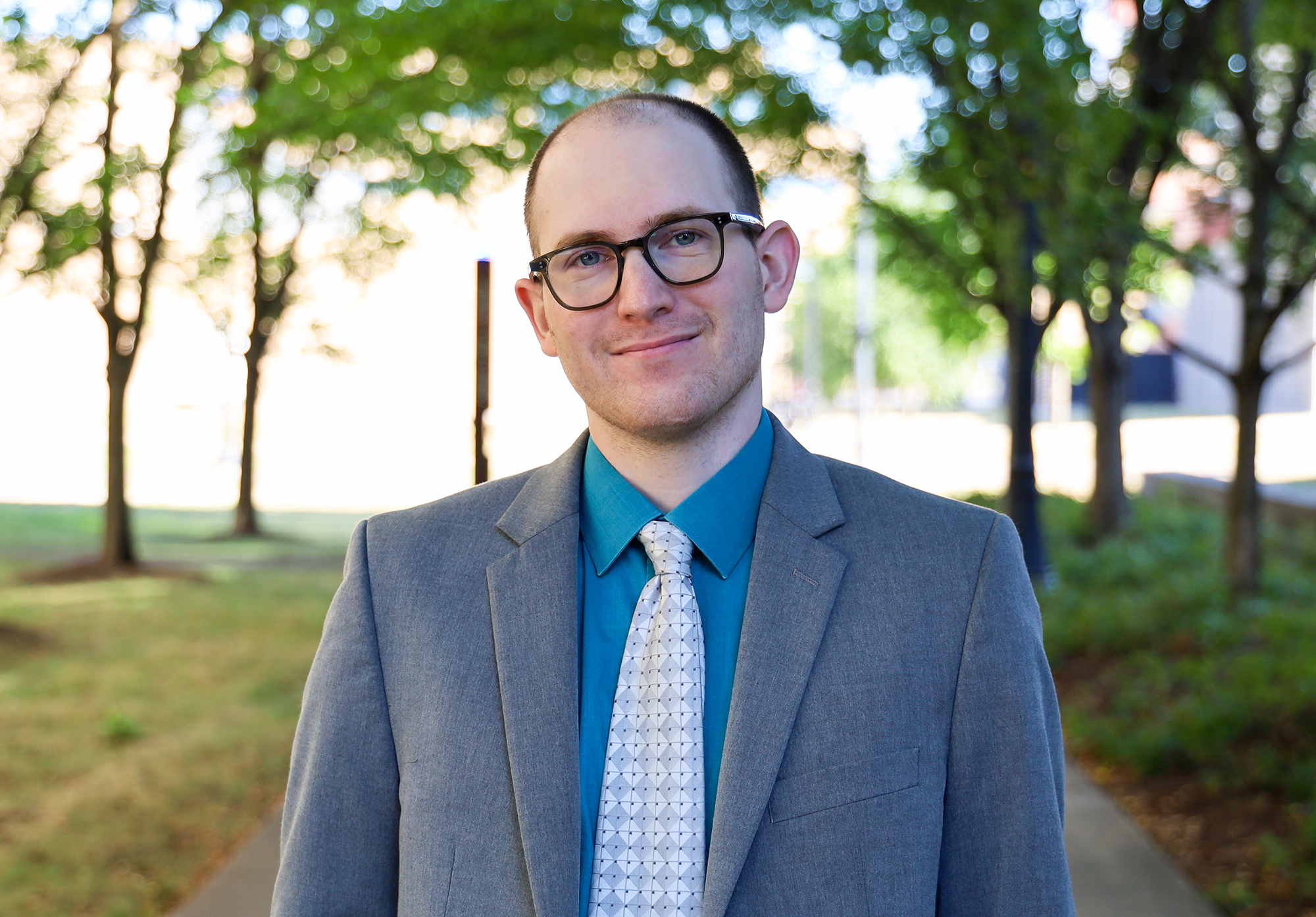Protecting the health of future generations
CPH’s Robert Hood explores environmental exposures, infectious disease impact on fetal development
By Kristen Mitchell

Robert Hood, an assistant professor in the Division of Epidemiology joined the College of Public Health faculty in 2024 and is focused on limiting harmful environmental exposures to protect maternal and child health.
The ’20 PhD alum shares how he discovered his passion for public health, the big questions that guide his research and his advice for students finding their path.
You are a maternal and child health epidemiologist. What does that mean?
I focus on health outcomes related to pregnancy, birth and human development. I am particularly interested in understanding how infectious diseases interact with everyday environmental exposures, like air pollution, on these health outcomes and how we can use this knowledge to protect the health of pregnant people and their developing fetuses and infants.
What drew you to public health?
I had not considered it until I took a public health class in college. During that class I learned about the five core disciplines of public health and fell in love with epidemiology since it combined several things I loved like math, biology and sociology. Public health is such an interdisciplinary field that it can work with almost any discipline, which means we constantly get to learn new things. Another thing that really drew me to public health is the emphasis on addressing both big upstream factors and the more individual downstream factors — it takes a wide scoping lens, which I really appreciate.
What’s one thing you’re currently working on that you’re excited about?
I just received pilot funding for a project that will look at exposure to two classes of chemicals found in our food packaging and personal care products, and how these chemicals impact infant birth size and early markers of child development.
One interesting aspect of this work is we are not only looking at exposures in mothers, but fathers as well. Historically, with environmental exposures and birth outcomes, we haven’t always considered how preconception exposures in male partners could impact birth outcomes. Another interesting part of this work will include using some newer methods to look at the combine impact of these classes of chemicals, which is a much better approach than trying to do more traditional methods that look at one chemical at a time.
Are there any big questions that guide your research?
The first is, how do environmental exposures interact with infectious diseases and what impact do these combine exposures have on maternal and child health? Additionally, I am really concerned about the impact these exposures have on health and development of future generations. For example, reproductive organs form during in-utero development and some environmental exposures and infectious diseases can adversely impact the developing fetus — what are the implications for those individuals when they want to attempt to have children?
Another big question is: How can we limit or eliminate harmful environmental exposures so that the health of the pregnant individual and their developing fetus and infant can have the best health possible?
You earned your PhD at CPH. How does it feel to return to the college as a faculty member?
It feels great to be back! I really enjoyed my time as a PhD student and learned so much, which really prepared me for my postdoc position. I am very excited to continue to work with members of the faculty who I worked with as a student and to establish connections with new faculty. I am also looking forward to working with and teaching the students in CPH, who are all exceptional!
What is your advice for students trying to identify their career interests in public health?
Try different things and be open to new opportunities. My own career has spanned several areas of public health including infectious diseases, cancer, disaster management and now maternal and child health. It does not hurt to try different areas and learn what you are passionate about. It will give you a unique perspective, expose you to new ideas and methods, and give you some flexibility in the future if you want to change what you are doing.